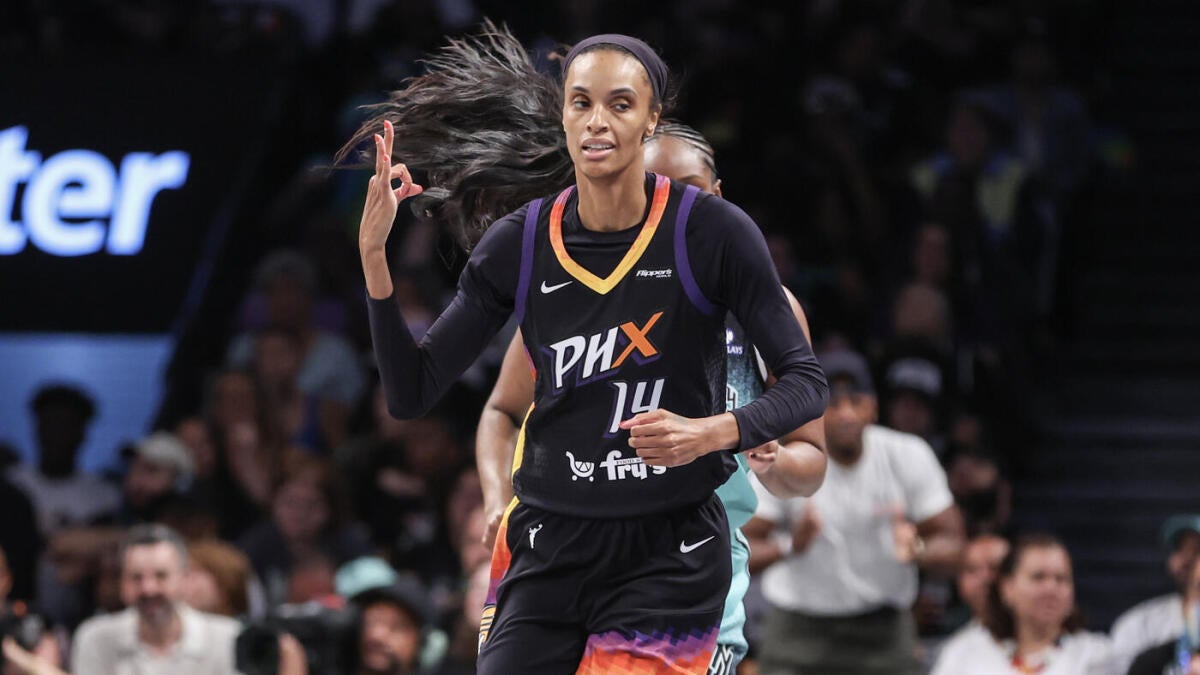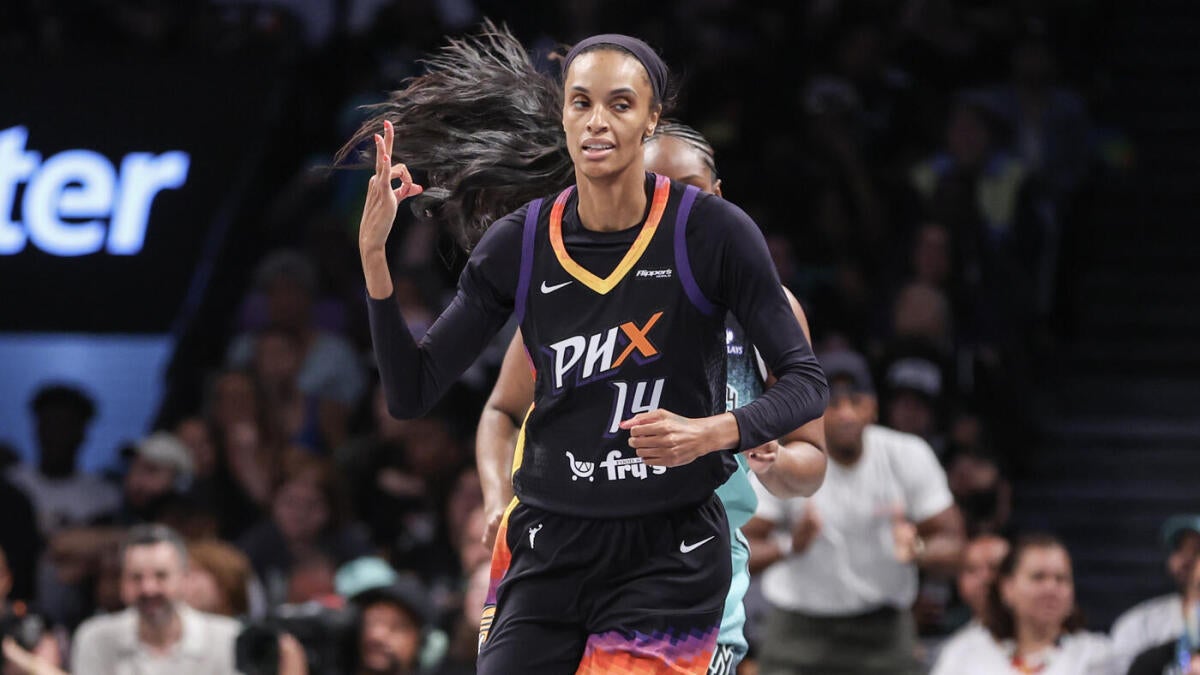The Curious Case of DeWanna Bonner: A WNBA Journey of No Regrets?
A Fever Dream Cut Short
DeWanna Bonner’s brief tenure with the Indiana Fever was a whirlwind of expectations and disappointments. When the Fever acquired her, the move was seen as a strategic coup, adding a six-time All-Star to a roster hungry for success. Bonner, known for her scoring prowess and leadership, was expected to elevate the team’s performance. However, the reality was far from the initial optimism.
From the outset, Bonner struggled to integrate into the Fever’s system. Reports suggested a mismatch in playing styles, with Bonner’s strengths not aligning with the team’s strategic approach. This led to decreased playing time and a noticeable dip in performance, a stark contrast to her previous success with the Phoenix Mercury. The rapid decline in her role within the team was abrupt, leaving both Bonner and the Fever searching for answers.
The reasons behind this disconnect are multifaceted. Potential factors include a clash in playing philosophies, difficulties in integrating into the team’s chemistry, or a strategic shift that didn’t leverage Bonner’s strengths effectively. Whatever the cause, the partnership quickly soured, culminating in the Fever’s decision to waive Bonner. The abruptness of her departure left many wondering about the underlying tensions and the potential fallout from the failed experiment.
The Mercury’s Magnetic Pull
Bonner’s swift return to the Phoenix Mercury was met with widespread approval, particularly from fans who remembered her fondly from her previous ten-year stint with the team. For Bonner, returning to Phoenix was more than just a change of scenery; it was a homecoming. The contrast between her experiences in Indiana and Phoenix is stark.
In Phoenix, Bonner is embraced as a veteran leader, a proven scorer, and a player deeply ingrained in the team’s history. This sense of belonging and familiarity undoubtedly contributes to her renewed confidence and improved performance. The Mercury provide a supportive environment where Bonner can thrive, allowing her to showcase her skills and contribute to the team’s success. The seamless transition back to the Mercury raises questions about fit. Was Bonner simply a poor fit for the Fever’s system and culture, or were there other factors at play that contributed to her struggles in Indiana?
“No Regrets”: A Mantra Under Scrutiny
Throughout this ordeal, DeWanna Bonner has consistently maintained that she has “no regrets.” She views her journey, with all its twists and turns, as an integral part of her career. While this unwavering positivity is admirable, it has also drawn scrutiny. Some critics have questioned the sincerity of her stance, suggesting that it might be a carefully constructed narrative to deflect criticism or avoid accountability.
One perspective argues that Bonner’s “no regrets” mantra overlooks the potential impact of her actions on the Fever organization. The team invested in her, and her departure undoubtedly disrupted their plans and potentially hampered their progress. Critics argue that a more introspective approach, acknowledging the challenges and missteps along the way, would be more appropriate.
However, Bonner’s supporters argue that her stance reflects a deep understanding of the unpredictable nature of professional sports. Players are constantly faced with difficult decisions, and sometimes those decisions don’t work out as planned. In Bonner’s view, dwelling on the past is unproductive. Instead, she chooses to focus on the present and embrace the opportunities that lie ahead.
The Broader Implications: Player Agency and Team Dynamics
DeWanna Bonner’s saga extends beyond her individual experience. It raises important questions about player agency and team dynamics in the WNBA. Players are increasingly asserting their right to control their own careers, seeking out environments where they can thrive and contribute to their fullest potential. Bonner’s decision to leave Indiana, while controversial, underscores this growing trend.
However, this increased player agency also comes with responsibilities. Players must carefully consider the potential impact of their decisions on their teams and the broader league. Teams, in turn, must create supportive and inclusive environments that attract and retain top talent. The Bonner situation serves as a reminder that successful team dynamics are built on mutual respect, clear communication, and a shared commitment to success.
A Win-Win (Except for Indiana?)
Looking at the situation objectively, one might argue that Bonner’s move ultimately benefited both her and the Phoenix Mercury. Bonner is back in a familiar environment, playing at a high level and contributing to a team that values her experience and leadership. The Mercury, in turn, have regained a key player who can help them contend for a championship. The Indiana Fever, however, are left to pick up the pieces and rebuild after a significant roster disruption.
This highlights the inherent risks involved in free agency and player movement. Teams take gambles on players, hoping to find the right fit. Sometimes those gambles pay off, and sometimes they don’t. In the case of DeWanna Bonner and the Indiana Fever, the gamble ultimately failed.
Conclusion: A Journey Still in Progress
DeWanna Bonner’s journey is far from over. Her return to the Phoenix Mercury marks a new chapter in her illustrious career. Whether her “no regrets” mantra is a reflection of genuine contentment or a carefully crafted facade remains a matter of debate. Regardless, her story serves as a compelling case study in the complexities of professional sports, highlighting the importance of player agency, team dynamics, and the ever-present pursuit of finding the perfect fit. One thing is certain: DeWanna Bonner’s impact on the WNBA, both on and off the court, will continue to be felt for years to come.












